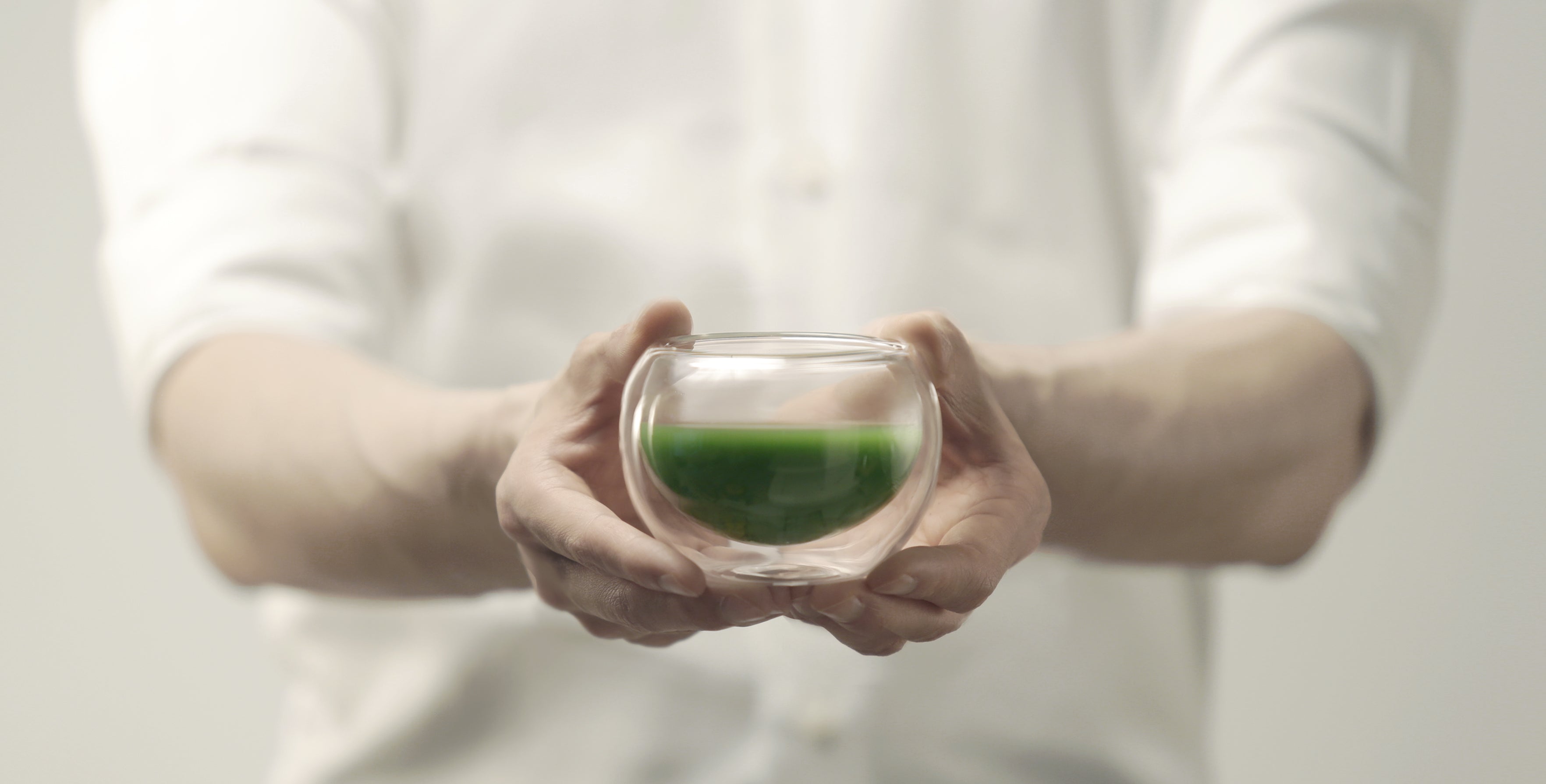Drinking the finest grades of matcha provides an epicurean experience not unlike that of the finest wine. These two highly-prized drinks with a long history of its own bear a great deal of similarity not only in terms of the high level of expertise and the tremendous efforts required in the production process, but also the breadth and depth of their flavour profiles. The paralleled nature of these two beverages makes it a compelling case why the finest grades of matcha should demand the same level of respect and appreciation as that of a truly great wine.
History: Revered with a history spanning over a millennium, matcha dates back longer than wine — to the early 600’s in Tang-Dynasty China. It was developed by the Japanese, who have honed matcha into the centrepiece of the Japanese tea ceremony. It was initially reserved for the nobles in the upper echelon of the Japanese society and only a small number of purveyors were allowed to make matcha. It was not until the 17th – 18th century that matcha was democratized and gradually taken up by the broader population of Japan. Nevertheless, akin to the world of fine wine, the knowledge of making the finest matcha is rarefied and remains within a number of elite producers even nowadays.
Terroir: Like fine wine, crafting exceptional matcha has everything to do with the notion of terroir, or the natural characteristics of the environment that influence the tea — the soil, the climate, the altitude, the humidity and the amount of rainfall. Just like the impact of limestone in the soil nourishing a fine pinot noir, the terroir significantly influences the taste profile of matcha. While the most expensive wines from the ‘Old World’ are generally associated with regions of southern Europe, the crème-de-la-crème grades of matcha are associated with the town of Uji in the southern end of Kyoto.
Craft: During the harvest period, just like the grape crush, the entire field is picked through until all the leaves appropriate for matcha are picked at the perfect time of the year, meticulously sorted through, to create a byproduct called tencha. Matcha ‘sommeliers’ are in charge of carefully blending the tencha leaves to create blends that are consistent over time. Special blends of matcha are often created in limited editions for special events, and are often bestowed tea names or chamei by grand tea masters.
Taste Profile: Speaking of flavour profiles, first class matcha, a category that includes our range of Ceremonial Grade Matcha, bears a lot of similarities with first class wine in terms of its multitude and sophistication of flavours. Both are potent, mellow, and complex, with a perfect balance of sweetness and astringency that ends with a long and smooth finish. Matcha is also extremely rich in antioxidants and polyphenols — much richer than any other types of tea as well as any other fruits and vegetables, making it one of the most nutrient-dense beverages on earth.
Drinking vs Cooking: Just like the distinction between drinking and cooking wine, matcha comes in a wide range in terms of quality. The two broad classifications are ceremonial and culinary matcha. Fine matcha that comes from the topmost leaves are delicate in taste and is meant to be drank on its own like drinking wine, and not used as a cooking ingredient. The analogy of using fine matcha as ingredients in recipes is pour an expensive bottle of Echezeaux into a pasta sauce — all the delicate flavours will be lost. On the other hand, culinary matcha is derived from the harsher parts of the leaves which taste more bitter and robust — ideal to be used as an ingredient just like cooking wine.
Despite the similarities between the two drinks, what that distinguishes matcha from wine is its abundant health properties that come with this remarkable tea. Instead of the soporific effects associated with alcohol, matcha provides a calming yet stimulating effect — a productivity-boosting drink for modern day consumers in need of a stream of clean energy that’s gentler on their bodies.
If wine is deemed the ‘elixir’ for those in the West, it is with little doubt that matcha is the muse of the East. As an exceptional beverage with a remarkable history, characters, and legendary health benefits, matcha deserves an elevated status and prestige as that of wine. Perhaps Okakura Kakuzo, has said it best in The Book of Tea: “the fact that tea, especially matcha, like any muse, has captured the imagination of an entire culture through time and space is reason enough to explore its storied past and its availability in our time from any vantage.”


